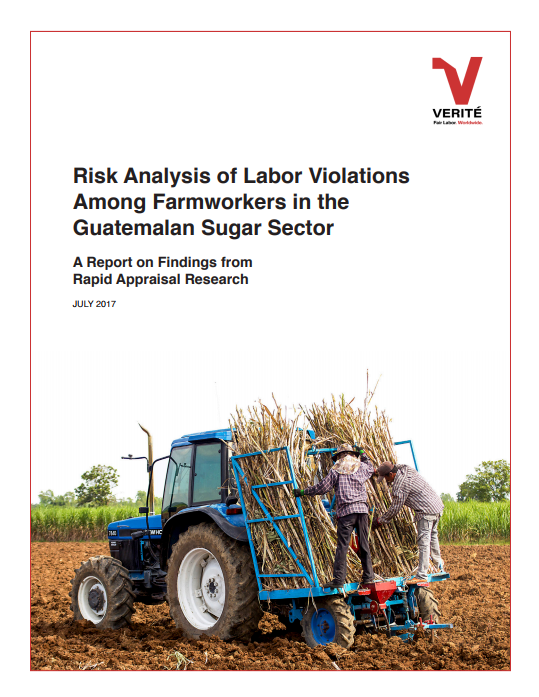Guatemala plays a major role in the global sugar trade, as the world’s fourth largest sugar exporter and the third leading exporter of sugar to the United States in 2015. Verité chose to carry out rapid appraisal research on labour conditions on Guatemalan sugarcane plantations due to Guatemala’s important role in the global sugar trade and indications that workers employed on sugarcane plantations were vulnerable to exploitation. Past studies on labour conditions among Guatemalan and Central American agricultural workers, as well as Verité’s past research in the Guatemalan coffee and palm oil sectors, indicated a high risk of labour violations.
This rapid appraisal uncovered a wide range of very serious labour conditions on Guatemalan sugarcane plantations, including indicators of human trafficking, many of which can be linked back to structural conditions in Guatemala generally and in its agricultural sector in particular. However, it should be noted that these labour vulnerabilities in sugarcane production are not isolated to Guatemala. Sugar production worldwide is characterized by difficult, dangerous work processes often carried out by vulnerable or marginalized populations. Sugarcane producers often use recruiters to find workers for this grueling work, which can exacerbate vulnerability to labour abuses.

